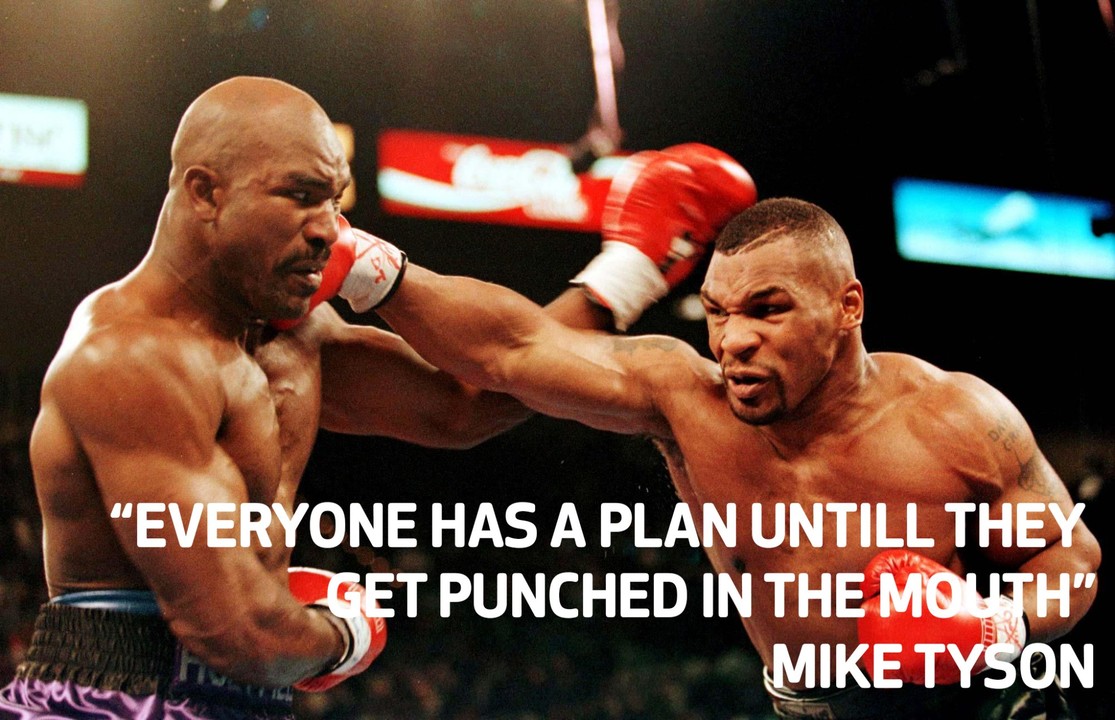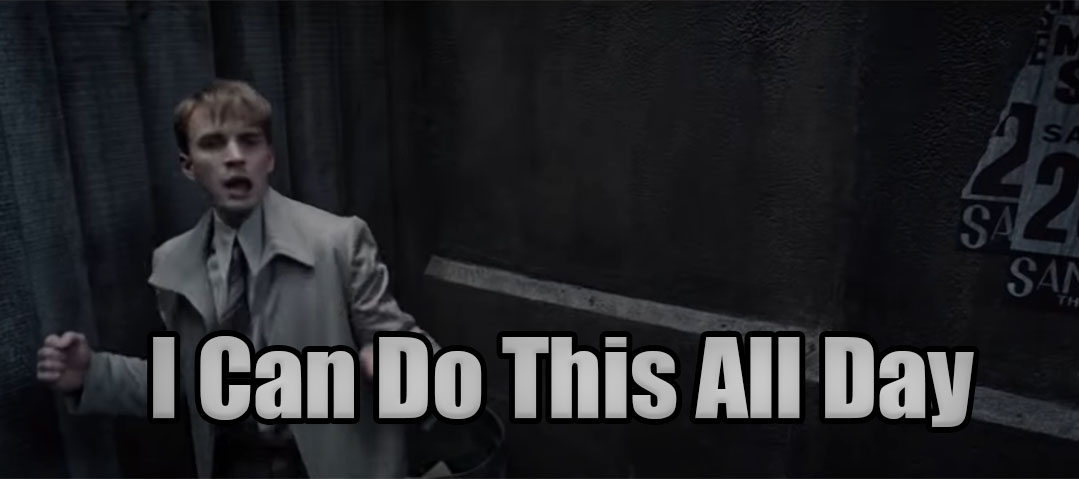This essay is a tangent based off my thoughts on Claudine Gay and her resignation as president of Harvard.
Where Claudine Gay dropped the ball
I don't know how the university presidents prepared for their testimony in front of Congress. I assume they sat down with their legal team and were told to stick to a set of response points and never deviate from them. This was a mistake.
This is the equivalent of going into a boxing match and having your corner man say "no matter what your opponent does - only throw two jabs and a right! Never deviate from that combo!"
I suspect that one reason Dr. Gay did so poorly in front of Congress is that she has not had conversations about this topic beyond the talking points given to her by the Harvard lawyers. As faculty dean and as president she was accustomed to being in charge. So whatever she felt was the appropriate course of action at work was what everyone had to agree with. She likely hasn't had to fight and sweat to convince anyone that she is right in decades.
So when she went in to be questioned by Congress she was coming from a position to which she was unaccustomed and for which she trained insufficiently. It reminds me of the difference between how Rocky Balboa and Clubber Lang trained for their first fight in Rocky III. One person trained for a show and the other trained for blood.
Why should we care? Most of us don't have jobs that put us in the spotlight. Most of us won't ever have to express an opinion on any issue. So the solution for us is simple - just keep our opinions to ourselves on controversial issues right?
Ultimately I think that is what certain people want. Certain people are trying to make it so that we all feel there is a huge penalty for expressing any opinion that goes against the grain. The reason they came down hard on Claudine Gay was to make everyone else fall in line. The message was clear; if they can bring down the President of Harvard then they can bring all of us down... so best just to keep your head down and not fight the consensus no matter how you feel. This is the tactic of bullies.
Bullies demonstrate their strength by picking on someone weak. People refuse to defend the weak person because they don't want to become the target.
This but way less funny
Arguing and fighting both require sparring partners
We don't want to give in to bullies. But if the first time you defend yourself is in front of a bully confronting you then you will definitely lose. The bully has experience fighting and you don't.
In order to have a chance of winning we need to train under fight like conditions. Just like Rocky did before fighting the world heavyweight champ.
This iconic scene is valuable to help us think about what makes a good sparring partner. In this case the side of beef helped Rocky develop his stamina and helped his fists get used to the feeling of punching something hard and real. In a gym session he couldn't punch as hard as possible because he wouldn't want to hurt his sparring partners.
A sparring match is designed to be as close as possible to the real fight without the injuries that accompany the fight. So in a sparring session you will get punched so that you don't flinch when you get hit, but you aren't hit so hard as to break your nose or anything like that.
If I had been in charge of prepping Dr. Gay I would have hired a former congresswoman to grill her for hours a day. If I couldn't find a former congresswoman I would have hired whomever I could find that most closely resembled Congresswoman Stefanik in temperament to ask the hardest questions possible. I would have a legal team scrutinize every question and answer and then review the tape to figure out how to counter that particular question. This is what boxers do. They get a sparring partner similar size to their opponent and they review the footage of the fight. This helps to counter any combos that are favored. This helps to anticipate what kind of hits you will take in that fight. This also helps to find the opponents weaknesses.
One of the reasons that boxing is so effective compared to other fighting styles is because boxing requires contact. Karate, with an emphasis on katas, or forms, rarely has students contact an opponent. In contrasts boxers are generally well prepared to defend themselves in a fight if they ever have the need.
Everyone should get at least two sparring partners in their life; someone they can practice some kind of self defense training with and someone with whom they can verbally spar.
"As iron sharpens iron, so one man sharpens another."
Friends can make each other better by testing each other. Training, competing and arguing with a friend make both people grow. They help you find your own weaknesses and compensate for them. They also give you a standard by which to compare yourself. By avoiding conflict altogether we lose the best opportunity we have to sharpen and strengthen ourselves.
We should have a friend that we can test ourselves against. Both someone physically to test ourselves against and someone to intellectually spar with. The most important part of sparring physically and intellectually comes from being able to assess someone and figure out your chances of winning. We need to spar against friends so that we can defend ourselves against enemies.
Find a topic that you can argue about with a friend without getting too angry. Express their point of view back to them so that you know that you can articulate their frame. Then go ahead and argue - both of you will benefit; you'll find some common ground hopefully and at the very least you will have developed some genuine understanding of the other side instead of the straw man arguments that are usually expressed in the news. That can only be for the good.
Sparring is a tremendous amount of fun! It is fun to see the rapid improvement in your strength, speed and responses as your nervous system adjusts in response to the direct stimulation. It is fun to see how your arguments become sharper and when you rigorously defend your position against someone whose intellect matches yours.
If the thought of having a discussion on any of these topics makes you queasy it means that you most likely haven't seriously challenged your convictions. If that's the case then you need to ask yourself "Do I know enough to defend my positions?" Most of the time people don't know enough to defend their ideas. . John Stuart Mill is quoted as saying "He who knows only his own side of the case knows little of that...".

If the only time you've ever discussed a contentious issue is at the bar with someone that you know agrees with you then you haven't really discussed the issue in a meaningful way. Until you hear a real argument from an opponent, not the strawman that is often presented by people who agree with you, you have no idea what the other side actually thinks. And until you know what the other side thinks you can't genuinely claim to know what you think. At best you can say that you have a bunch of received ideas that resonate with you.
The alternative to not arguing is to freeze in the face of being confronted. Or to borrow the words from another great thinker...

Not having the ability to argue means that you have effectively given up your right to have a voice. Freezing when you hear someone say something that you disagree with or just quietly mumbling some kind of noncommittal response to avoid confrontation feels weak. When this has happened to me I stew about it for a long time.
Light and hard sparring
Light sparring is more of a dance; you focus on foot work, dodging and blocking punches and generally just getting into the groove for a fight. With hard sparring you are going in to hit your opponent and hurt them - but not as hard as you would in a real fight. Boxers need to train both in order to prepare and we should do the same for verbal sparring.
You'll need the skills you hone from light sparring sessions when you are sitting with coworkers, acquaintances or the easily offended. You want to find a way to deflect their energy so that you can express your point of view without being giving in. They probably aren't trying to hurt you but you don't want to create a hostile work environment as you attempt to explain and defend your positions. You need to learn how to disarm and reduce the damage they can do.
Asking lots of questions as a substitute for stating your opinion is an example of light sparring. You aren't disagreeing with the group you are asking questions that you don't have an answer to which keeps you from agreeing with whatever is the dominant position.
But sometimes you need to fight for proverbial blood. Dr. Gay needed to learn how to fight hard against Congresswoman Stefanik. She needed to be combative and deny the congress woman's assertions and reject the premises of questions the congresswoman asked. She needed to say things along the lines of :
- "Why are words violence all of the sudden just because you disagree with them? Just last month you were railing about how coddled college students are with their safe spaces and trigger warnings what happened to all that?!"
- "When did conservatives abandon their commitment to free speech?!"
- "Do you want me to police students thoughts or do you want them to learn to think for themselves?!"
- "I completely reject your premise and fascist goal of speech policing. Do you believe that the first amendment only applies to speech that you approve?"
- "If you'd stop trying to generate sound clips to theatrically appease your voting bloc and donors for a moment you would understand what I'm trying to say"
Would it work? Would Dr. Gay have been able to keep her job? Probably not. Once the plagiarism issues became public her administrative career was over. But fighting back against bullies isn't mainly about winning the fight. When a bully attacks you the way to win is to make sure that you fight back and punch as hard as you are hit.

Why this matters
We self censor because we have been trained to think that opinions that doesn't align with the popular narrative have to be kept to ourselves. That self censorship is exactly what certain influential industries want:
- The Military industrial complex doesn't want us to question the reasons for routine global conflict.
- The pharmaceutical industry does not want us to question the science or to do our own research.
- Mainstream media does not want you to hear information that disagrees with the narrative of their main advertisers.
- The government doesn't want you to talk about the growing administrative and regulatory state that monitors people without oversight and enacts legislation that is far beyond their mandate. Fortunately the culture war helps to distract us from issues like the Pentagon's trillions of dollars in liabilities and how their failed 6th audit.
Organizations who are charged with framing reality according to their world view benefit tremendously from our reticence to discuss taboo subjects and question their narrative. They want to take away our voice so that we will go along with whatever they feel is best.
So if I could encourage people to do anything it would be to find at least one person that you can have tough discussions with. Maybe an old high school buddy or your cousin - someone who disagrees with you but you have enough collective goodwill that intense arguing won't lead to an ending of the relationship.
And discuss as many tough political issues as you can stomach:
- Have a tough abortion discussion with someone who is on the other side.
- Passionately argue over the causes and solutions to the Israeli/Palestinian conflict.
- Discuss whether we should be the worlds police force with someone who is incredibly patriotic and has served.
- Talk about nuclear power versus green energy and the realities versus fear mongering about climate change.
- Fight about the ethics and cost/benefits of transgender women in sports.
- Have the knock down drag out fight about Trump and the 2024 election.
Whatever issues are taboo in your personal circles are the ones that require a sparring partner. Whatever you care about but haven't discussed with someone who feels the opposite should be discussed. It will be tough - it will feel like you're stepping on land mines. But with enough practice you will figure out how to express your opinion without hitting someone's nerves. And if you need to hit a nerve you'll figure out how to hit it hard enough to win the argument.
And after you have these fights you have a beverage or two after to show that there's no hard feelings!
Not having experience fighting is a tremendous detriment to your ability to get through life. Real fights are zero sum games; someone wins and someone loses. We have some experience in that realm when we play sports but fights are zero sum games in an extreme; the loser is usually badly injured. Someone who is untrained in a fight will not only lose badly; they will be injured far worse than someone who has trained to take a hit and has learned how to hit back.
The purpose of training to fight isn't so that you go and pick a fight. The purpose of training is so that you'll be prepared in case you need to be. Better to prepare for a fight that never happens than to find yourself in a fight for which you were never prepared.
Please share this essay with anyone you think might feel like they've been worried about sharing their opinions - you're not alone!
Thanks again to Chris at oddlinks.com for reading my work and sharing his thoughts. I'm a big fan of his writing!



Member discussion: